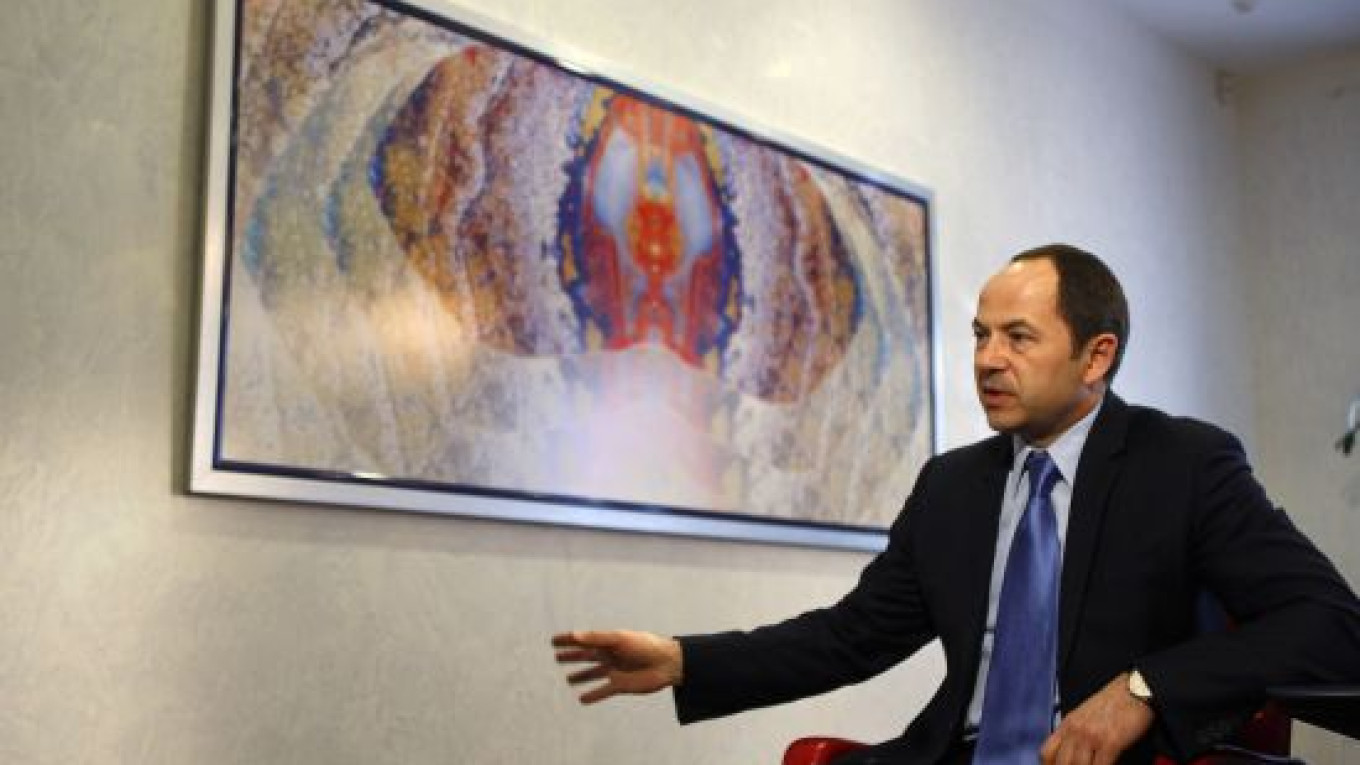Ukrainian businessman Sergey Tigipko, wooed by two presidential rivals as a possible prime minister, said on Monday that Ukraine's gas deal with Russia should be revised.
Tigipko, 49, came in a strong third in a first round of the presidential election on Jan. 17, and both opposition leader Viktor Yanukovych and Prime Minister Yulia Tymoshenko have made overtures to him in exchange for his support in their Feb. 7 runoff against each other.
Tigipko, in an interview with Reuters, said he was ready to serve either as prime minister as long as he had their backing for "unpopular measures" to modernize the struggling economy, but he said gas agreements signed with Russia a year ago should be looked at again.
"Here transparency is needed. I am sure that we will, all the same, have to look again at these contracts [with Russia]. If a new president gets in, who is not Tymoshenko, he will be obliged to do this," Tigipko said.
"At the moment, they [Russia] are providing us with gas at European prices, but it often turns out to be more expensive than in European countries, but our tariffs are lower for transportation. I think that we must return to this question," Tigipko said.
The deal signed by Tymoshenko and Prime Minister Vladimir Putin in January 2009 put an end to a pricing dispute that led to Russia cutting off supplies for nearly three weeks, affecting millions of households in the European Union, which receives much of its gas in transit through Ukraine.
Tigipko also said he was not against selling stakes in the operations of ailing state energy firm Naftogaz to Russia and the European Union after breaking the company into extraction, transporting and gas storage sections — something recommended by the EU.
"After this, let us keep the controlling stake for ourselves, sell off 25 percent to the Russians and sell off 25 percent to the Europeans and we will receive an absolutely comprehensible organization," he said.
Tigipko's statement is unusual. Ukrainian politicians are very wary of Russia's involvement in its gas sector, especially its transit infrastructure through which Europe gets Russian gas, as a means of exerting political control.
At least two laws passed by the parliament forbid the privatization or leasing of Ukraine's gas infrastructure.
Though he said he would not support either candidate, his thinking on the gas issue put him far closer to Yanukovych's position than that of Tymoshenko, who is the main defender of the gas deal with Russia and is opposed to selling Naftogaz.
Tigipko, a millionaire former central banker, deputy prime minister and economic minister, put the accent on the need for painful reforms to modernize the country and a tough budget to bring back International Monetary Fund support.
The IMF suspended its $16.4 billion bailout program to the ex-Soviet republic late last year after the parliament raised the minimum wage in violation of promises to control the budget.
"I don't believe the [IMF] money will come unless there is reform," he said. But he did not enter details about what precise "unpopular" measures he envisaged.
The country plunged deep into recession at the end of 2008 as exports of steel and chemicals plummeted, taking the hryvna currency with them. This shook the banking sector and sapped state finances, bringing Ukraine to the verge of bankruptcy.
Tigipko repeated that he would not publicly back either Yanukovych or Tymoshenko, whom he accused of making nakedly populist statements. Together with President Viktor Yushchenko, they represented "three politicians without prospects", he said.
"I will not be supporting anyone," he said. But he added that he was prepared to hold a "pragmatic, honest conversation" about the prime minister's job with whoever became president.
He said if the result of the Feb. 7 runoff was challenged by one of the candidates and trouble ensued, it was within Yushchenko's powers as president to declare a state of emergency.
"How he acts — that is his decision, but on the basis of past practice up to now I believe that such an option is possible," he said.
But he conceded that though he had spoken recently with Yushchenko, this option had never been discussed.
Tigipko said, however, that he did not think that the February vote would result in street protests like those that led to the "Orange Revolution" in 2004 and brought Yushchenko to power after a rigged election had earlier voted in Yanukovych.
A Message from The Moscow Times:
Dear readers,
We are facing unprecedented challenges. Russia's Prosecutor General's Office has designated The Moscow Times as an "undesirable" organization, criminalizing our work and putting our staff at risk of prosecution. This follows our earlier unjust labeling as a "foreign agent."
These actions are direct attempts to silence independent journalism in Russia. The authorities claim our work "discredits the decisions of the Russian leadership." We see things differently: we strive to provide accurate, unbiased reporting on Russia.
We, the journalists of The Moscow Times, refuse to be silenced. But to continue our work, we need your help.
Your support, no matter how small, makes a world of difference. If you can, please support us monthly starting from just $2. It's quick to set up, and every contribution makes a significant impact.
By supporting The Moscow Times, you're defending open, independent journalism in the face of repression. Thank you for standing with us.
Remind me later.


